
|
MANDEVILLE (985) 635-8846 | NEW ORLEANS (504) 362- 8020 | |||||||||||||||||||||||||||||||
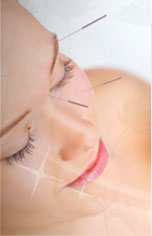 |
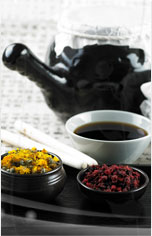 |
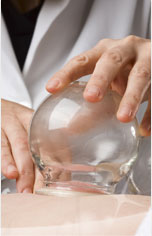 |
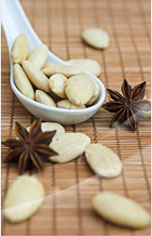 |
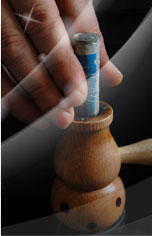 |
||||||||||||||||||||||||||||
Frequently Asked Questions1. Does acupuncture hurt?Acupuncture is virtually painless. When people think of needles, they usually think of hypodermic needles, the type of needles used to draw the blood out, but acupuncture needles are extremely thin, solid and flexible. A hypodermic needle also has a very blunt point (actually a wedge shape) compared to an acupuncture needle. 40 acupuncture needles can fit into the tip of one standard 18 gauge hypodermic needle. Sensations that patients normally experience are a dull ache, heaviness, distention, tingling, electric sensation traveling along a meridian, or warmth, which is associated with the movement of energy (Qi) stimulated by the insertion of the needles. This is a desired affect and should not feel painful. Many people do not even feel the needles being inserted. Most people find acupuncture extremely relaxing, and many fall asleep during treatment.
2. How does acupuncture work?It depends on which perspective you are looking from. From a Traditional Chinese medical paradigm, acupuncture stimulates the body to heal itself. Fine needles are inserted in the specific points on the body, stimulating Qi, the vital energy of the body. By adjusting the flow of Qi in the body, acupuncture restores the harmonious balance of the body and enables your body to heal itself. Western medicine recognizes the positive effects of acupuncture, but uses a different biomedical terminology to describe how it works. Many scientific studies and controlled clinical trials have been conducted to measure and explain the effects of acupuncture. The results of these studies have shown that acupuncture stimulates endorphin release, increases blood circulation, regulates reproductive hormones, alters pain receptor-pathways, and reduces inflammatory responses. Below are the theories on the mechanism of acupuncture.
1. Neurotransmitter Theory Acupuncture triggers the secretion of neurotransmitters, such as endorphins, serotonin, and norepinephrine in the brain and spinal cord. By releasing neurotransmitters, acupuncture can reduce pain, influence the immune system, and effectively treat depression, anxiety, and addiction.1, 2
2. Blood Chemistry Theory Acupuncture can regulate homeostasis of the body by affecting the blood concentrations of triglycerides, cholesterol, and phospholipids.3, 4
3. Autonomic Nervous System Theory Acupuncture increases electrical conductivity of tissues along acupuncture meridians by stimulating the release of norepinephrine, acetylcholine and several types of opioids.5
4. Gate Control Theory This theory postulates that 1) specific nerve fibers transmit a pain signal to the brain via the spinal cord, and 2) input of other nerve fibers can inhibit the pain signal transmission. Acupuncture is thought to "gate out" the pain signal to the brain by stimulating inhibitory nerve fibers.6
3. Is Chinese medicine safe?When administered by a licensed acupuncturist, acupuncture and herbal medicine are extremely safe way to treat a variety of ailments and diseases. Relatively few complications from the use of acupuncture have been reported to the U.S. Food and Drug Administration (FDA) considering the millions of people treated each year and the number of acupuncture needles used. Still, complications have resulted from inadequate sterilization of needles and from improper delivery of treatments. At Acupuncture Wellness Center, we exclusively use sterilized, individually packaged, and disposable needles which are promptly discarded after each use. Every practitioner had extensive training in anatomy to avoid accidentally inserting a needle in a place that can cause damage. While herbal medicine in general is very safe, extra attention is always paid to any possible drug/herb interaction. At Acupuncture Wellness Center, we carefully design herbal formulas for individual patients, considering their specific needs and the medications they are taking. We only use the highest quality herbs from E-Fong Herbs and Mayway which have passed rigorous tests and comply with GMP safety guidelines.. The average liability coverage for an acupuncturist is about $600 per year, while primary care physicians pay an average of $12,000 per year. That’s a 20:1 difference. While this may not translate into exactly a 20 to 1 difference in safety, a visit to an acupuncturist is at least as safe as a visit to your doctor, if not safer.
4. Is it okay to get acupuncture while I am receiving medical care for my condition?Absolutely! In fact, it is often advantageous for a patient to receive both Eastern and Western medical care for their condition. In most cases, acupuncture and herbal medicine will not interfere with other forms of treatment a patient may be undergoing or has undergone. Acupuncture and Chinese Medicine can provide faster and greater relief and recovery when combined with Western medical care. If we believe that our treatment would not be advisable for any reason, we will certainly inform the patient of our concerns. 5. How many treatments will I need? How often would I need to come in for treatment?The number of visits you will need varies for everyone, depending on the duration, severity, and nature of the illness. Generally, the longer you have suffered, the more treatments you need. Acute conditions, such as sudden pain from an injury or seasonal allergies may require 3 or 4 treatments before symptoms subsides. Chronic conditions like asthma, back pain or other problems that you have had for many years may take anywhere from 6 to 12 treatments until you notice significant changes. Typically acupuncture treatments are given once a week. If the condition is acute and relatively severe, treatments may be given 2-3 times per week until the condition starts to come under control. The exact duration of treatment depends on the condition, your basic level of health, and how well you respond to acupuncture. On your first visit, we will take a detailed health history and determine an appropriate treatment plan based on your signs and symptoms and the findings from that visit.
6. How should I prepare for my first visit?
7. What should I do after my acupuncture treatment?
8. What is "dry needling" and how does it differ from acupuncture?Both dry needling and acupuncture involve the insertion of thin needles that do not inject fluid into the body. Technically, dry needling is a technique of acupuncture, because acupuncture is defined as the insertion of an acupuncture needle into a patient’s body. Originated in Asian medical practices, acupuncture has been used for nearly 3000 years. During an acupuncture session, needles are inserted into acupuncture points along meridians or “A Shi” points. The meridians are where Qi (the vital energy of the body) flows, and they are linked to specific internal organs and organ systems. “A Shi” points are any points on the body that do not correspond to meridians. In Chinese medicine, blocked or imbalanced flow Qi causes pain and illness. By inserting needles at specific points, acupuncturists redirect and restore proper flow of Qi throughout the body to relieve pain and promote overall health and wellness. Dry needling is a relatively new process based on Western anatomical and neurophysiological principles. With dry needling, needles are inserted into knotted or tender areas of muscles or soft tissue at greater needle depth and often thrusted or manipulated to release the knot and relieve neuro-muscular pain. Acupuncture is performed by board-certified acupuncturist who have completed a minimum of 4 years of master’s or doctorate level of training in Chinese medicine and acupuncture, including at least 600 hours of clinical training. Dry needling is usually admitted by non-acupuncture trained professionals, such as physical therapists or chiropractors, who received a certificate on needling after a course of additional training. |
||||||||||||||||||||||||||||||||
|
||||||||||||||||||||||||||||||||
| Copyright © 2011 Acupuncture Wellness Center. All Rights Reserved. | ||||||||||||||||||||||||||||||||


